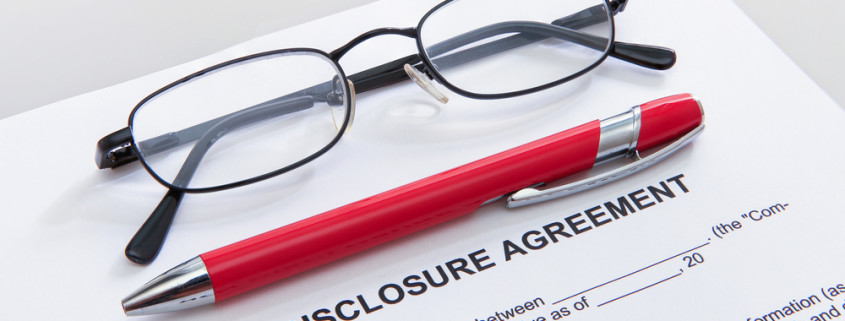Why we won’t sign your non-disclosure agreement (and when we will)
As a marketing agency we are exposed to many types of businesses at different stages of their development. The work we do varies from small ad-hoc pieces of work that only take a week or two to create, through to long-term marketing support relationships that can last for years.
From time to time during the course of our work we get asked to sign Non-Disclosure Agreements (NDAs). An NDA creates a binding legal agreement between the organisations and the people in them with the aim of protecting confidential information and intellectual property.
We recognise that there is a time and place for NDAs, and we will happily sign them when certain conditions are met. Unfortunately many of the NDAs we see don’t even come close to meeting those criteria and we would rather walk away from the work than risk the repercussions that could arise from signing them.
It’s not the idea, it’s the execution that counts
Everyone has an idea for something. But it’s not the idea itself that is valuable. It is the execution of the idea that counts. It’s the specifics of what is built around that idea and how it is implemented that counts. Not the idea on its own. So please don’t send us an NDA that seeks to protect some vague idea or notion.
Those types of agreements are not tailored to the business being discussed, they don’t define the details of the intellectual property concerned, have no timeframes or sunset clauses, and try to protect something as vague as “ideas and concepts we share with you.” The words “ideas” and “concepts” are so all-encompassing that they could cover just about anything.
By signing something that is so general and open to interpretation we would be making ourselves incredibly vulnerable. After all, how on earth are we going to track every word, every “notion” or “idea” that we discuss in every conversation we have with a business? And who’s to say that we haven’t encountered or will encounter some of those “ideas” and “notions” somewhere else? By signing something like that, we would also be restricting who we can work with in the future.
We take legal agreements and our commitments to them very seriously. This means that we won’t sign any agreement until it has been read and approved by our lawyers. Getting our lawyers to read and amend contracts costs us time and money. So we’ll only send them something that meets certain criteria.
What will we sign?
If you have an NDA that has been drawn up specifically for your business, or a specific meeting you want to have, and it outlines the confidential information, your intellectual property, the patents you’ve filed, the trademarks you’re protecting, or other clearly defined details relating to the business in question, and the timeframes involved, then we’ll consider it.
If you really have some “secret sauce” and you want to share the recipe with us, then it makes sense to have an NDA protecting you. Do you have some proprietary code for a web app you’ve built? Or a patent you’ve filed for a new invention that you want to commercialise? Great! We understand where you’re coming from. Spend the time and money to have a lawyer prepare an agreement that covers the specifics of what is covered, and we’ll look at your NDA.
But please, no more generic NDAs that were downloaded from the internet and which are so broad that they could be interpreted to cover just about anything.





